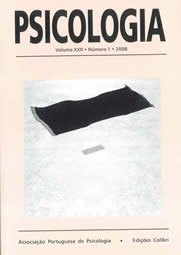Social representations and identity of gypsy and rural women groups
DOI:
https://doi.org/10.17575/rpsicol.v22i1.342Keywords:
-Abstract
From the Social Identity and Social Representations theories, our objective was to analyze the intergroup relations established between rural and gypsy communities, attempting to understand the significations and practices constructed at the inter-group and out-group dynamics. Seventeen women from two traditional communities, with ages between 14 and 67 years, participated in this study. We performed individual interviews after semi-structured scripts. We analyzed the data through the ALCESTE software and Content Analysis. The results indicated presence of practices that suggest the existence of ambiguous elements of representation guiding the intergroup relations. The conflict produced by the identitary differentiation anchored at the elements of the “Gypsy” and “Rural” cultures, reinforced by representations of gypsies as a cursed people, and the solidarity ties generated by the common feminine identity, that aggregates the feeling of “suffering and exploited women” by men who have the power at both groups.


